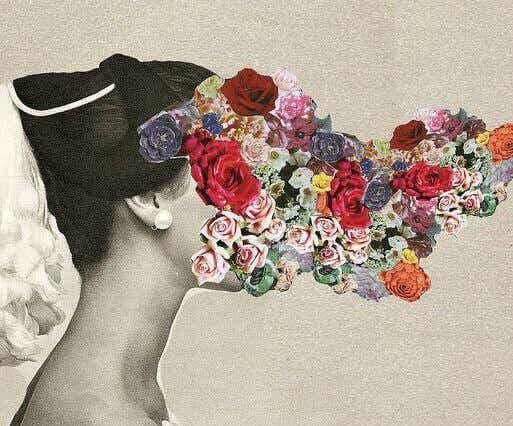
Last update: April 06, 2016
It is said that the greatest geniuses were veritable monuments to disorder. Einstein's or Mark Twain's desk, among many others, were really spider's nests. Objects everywhere, folded sheets, garbage here and there… In short, a nice mix of everything.
However, being messy doesn't mean you're a genius. Just as being too tidy doesn't make us better people. Extremes never go well when dealing with the realities of human life.
In today's world, time is scarce. It is no longer possible to make floors shine like mirrors or leave even the smallest corner of the house immaculate. Having a cleaner is a luxury that few can indulge in and dedicating time to cleaning is not that simple.
This, however, does not mean that everything has to remain in disorder. It can be tidied up without spending too much time. It's just a matter of getting organized and adopting some habits. But why do some people fail? What is behind the compulsive disorder?
The meaning of the disorder
In general, if the place where we live or spend most of the time is in disorder, this is a symptom of a disorder in our inner world. Having a lot of objects means having too many ideas and unfinished projects. The disorder sends a message of internal confusion, lack of organization and definitions.
Furthermore, studies of Feng Shui and similar practices reveal that clutter has different meanings depending on where it accumulates. This is what they tell us about it:
- Clutter or the accumulation of objects in places close to the entrance to the house indicates a profound fear of relating to people.
- Clutter or accumulation of objects in the kitchen or in the spaces where food is prepared indicates emotional fragility or resentment.
- Clutter or accumulation of objects in the closets reveals difficulties in analyzing feelings and emotions.
- The clutter or accumulation of objects under furniture indicates dependence on the opinion of others or the fact of giving importance to appearances.
- The disorder or the accumulation of objects behind the doors is an expression of fear of being rejected by others and the belief of being observed.
- Cluttered or piling objects on your desk or workplace indicate fear, frustration, and a need for control over situations.
- Clutter or storage of items in the garage implies fear of new and unknown things and an inability to update.
- Clutter or the accumulation of objects near the corridor means fear of expressing oneself, of saying what one wants directly.
- The disorder or the accumulation of objects in the room is fear of being rejected by society.
- The clutter or the accumulation of objects in the dining room has to do with feeling controlled by the family, being unsure of oneself.
- Clutter or the accumulation of objects throughout the house means repressed anger, apathy and disinterest in life.
The benefits of overcoming the clutter
Our space does not need to be as bright as a "silver tray". In fact, worrying too much about disorder steals energy from us that we could devote to the most important things and makes us demanding, asocial and neurotic.
The important thing is to be able to live in a space that we find pleasant and easy to manage. There is no point in wasting time looking for things that disappear in clutter, or getting depressed just by looking at the condition of our home or workplace.
One of the first causes of disorder is the fact of not having classified objects well and, precisely for this reason, many things do not have a definite place to stay.. It is important to analyze what types of objects there are in the home or office, organize them into categories or groups and determine the place of each group.
The elements of the desk must have their place, as well as medicines, papers, books, notebooks, umbrellas, etc.. You may find yourself defining two or three places to keep the same category of objects if there are many.
The next step is to work on thinking to make room for new things. As long as we store items that we no longer need or keep things for the simple fact of keeping them, it will be impossible to go on. It is necessary to get rid of everything that is no longer needed. What we haven't used in the last year must end up in the garbage or in the attic.
Dear readers, you must understand that cleaning and tidying your home also means tidying up your mind, purifying the environment in which you live and healing your life. Make up your mind to change your way of thinking and get rid of the objects that prevent new things from entering your life.
Images courtesy of Graphic 3D and Diégo Max.


























